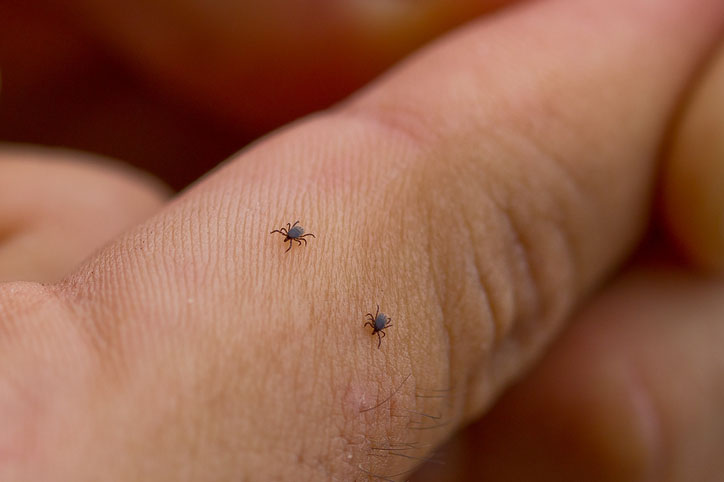Disorders Caused by Protozoa of the Digestive System in Cats
- Digestive Disorders of Cats
- Introduction to Digestive Disorders of Cats
- Congenital and Inherited Disorders of the Digestive System in Cats
- Dental Development of Cats
- Dental Disorders of Cats
- Disorders of the Mouth in Cats
- Disorders of the Pharynx in Cats
- Disorders of the Esophagus in Cats
- Vomiting in Cats
- Disorders of the Stomach and Intestines in Cats
- Disorders Caused by Bacteria of the Digestive System in Cats
- Gastrointestinal Parasites of Cats
- Disorders Caused by Protozoa of the Digestive System in Cats
- Disorders of the Pancreas in Cats
- Disorders of the Liver and Gallbladder in Cats
- Disorders of the Rectum and Anus in Cats
Protozoa are single-celled organisms that can sometimes cause disease. They may be free-living or parasites. Some of the more common diseases caused by protozoa in cats are discussed below.
Amebiasis
Amebiasis is a disease caused by the amoeba Entamoeba histolytica. It causes inflammation of the large intestine, which produces persistent diarrhea. Amebiasis is common in people, sometimes seen in dogs and cats, and rare in other mammals. Humans are the natural host for this species and the usual source of infection for domestic animals. Cats become infected by eating food or water contaminated with feces containing infective cysts, which are a dormant form of the parasite.
Entamoeba histolytica lives inside the large intestine and will sometimes produce no obvious signs. On the other hand, it can invade the intestinal lining and produce inflammation, wounds, and bleeding. In short-term disease, severe diarrhea may develop. This disease may be fatal, become long-lasting, or improve spontaneously. Cats with longterm infection may show weight loss, poor appetite, straining to defecate, and diarrhea. Any of these signs may be continuous or may come and go.
The disease is diagnosed by the presence of active or dormant E. histolytica in feces. If infection has occurred outside of the intestine, the parasites may be difficult to detect. Antibiotics may be prescribed to treat this illness.
Coccidiosis
Coccidiosis is an invasion and destruction of intestinal tissues by any of several protozoa. Coccidiosis can cause illness in cats but while infections are very common, signs associated with infection are much less common.
Coccidia more commonly infect kittens and tend to infect animals that have been weakened in some way. Therefore, signs of illness caused by coccidiosis are most prevalent under conditions of poor nutrition, poor sanitation, or overcrowding, or after stresses such as weaning or other intestinal infections. Infection results when an animal eats infective egg cysts (oocysts). These oocysts enter the environment in the feces of an infected animal, but they are unable to cause infection until they develop further under the right environmental conditions.
The most common signs in severe cases are diarrhea (sometimes bloody), weight loss, and dehydration. Your veterinarian will combine the results of fecal examinations with observations of signs and intestinal abnormalities to confirm the diagnosis.
Treatment may be unnecessary in cats because they usually eliminate the infection spontaneously, although sick animals can be treated with medication if needed.
Sanitation is important, especially in catteries or other places where large numbers of animals are housed. Feces should be removed frequently, and fecal contamination of food and water should be prevented. Cages and utensils should be disinfected daily. Raw meat should not be fed. Insect control is also important.
Giardiasis
Giardiasis is a longterm, intestinal protozoal infection caused by species of Giardia. It is seen worldwide in most domestic and wild mammals, many birds, and people. Infection is common in cats. Giardia has been reported to be found in up to 35% of fecal samples from pet and shelter cats, with a higher rate of infection in younger animals.
Giardia protozoa live in the small intestine, where they attach and multiply. They produce cysts that are passed in the feces. Transmission occurs by spread from feces to mouth.
Giardia infection in cats sometimes causes no signs. In other cases, it causes weight loss and longterm diarrhea, which can be continual or intermittent, particularly in kittens. Feces usually are soft, poorly formed, pale, foul-smelling, contain mucus, and appear fatty. Occasionally vomiting occurs. A diagnosis is usually made by identifying Giardia cysts or Giardia antigen in stool samples.
To treat giardiasis, your veterinarian will likely prescribe a drug or combination of drugs that are effective against protozoa. A vaccine is available for cats in some countries. Some studies indicate that the vaccine may reduce signs as well as the number and length of time cysts are shed into the environment. Your veterinarian can tell you whether or not this vaccine is appropriate for your cat.
Giardia cysts in the feces are a source of infection and reinfection for cats, particularly those in crowded conditions such as catteries. Prompt removal of feces limits environmental contamination. Cysts contaminating the hair of cats may be a source of reinfection. Shampooing and rinsing the animals well can help remove cysts from hair. Vaccination can aid in disease prevention by decreasing or preventing cyst shedding. Cats may be infected with a type of Giardia species that only infects cats, but they may occasionally have a type that also infects people. Cat feces should be disposed of promptly. It is important to wash your hands properly after handling infected animals or their feces.
- Digestive Disorders of Cats
- Introduction to Digestive Disorders of Cats
- Congenital and Inherited Disorders of the Digestive System in Cats
- Dental Development of Cats
- Dental Disorders of Cats
- Disorders of the Mouth in Cats
- Disorders of the Pharynx in Cats
- Disorders of the Esophagus in Cats
- Vomiting in Cats
- Disorders of the Stomach and Intestines in Cats
- Disorders Caused by Bacteria of the Digestive System in Cats
- Gastrointestinal Parasites of Cats
- Disorders Caused by Protozoa of the Digestive System in Cats
- Disorders of the Pancreas in Cats
- Disorders of the Liver and Gallbladder in Cats
- Disorders of the Rectum and Anus in Cats





